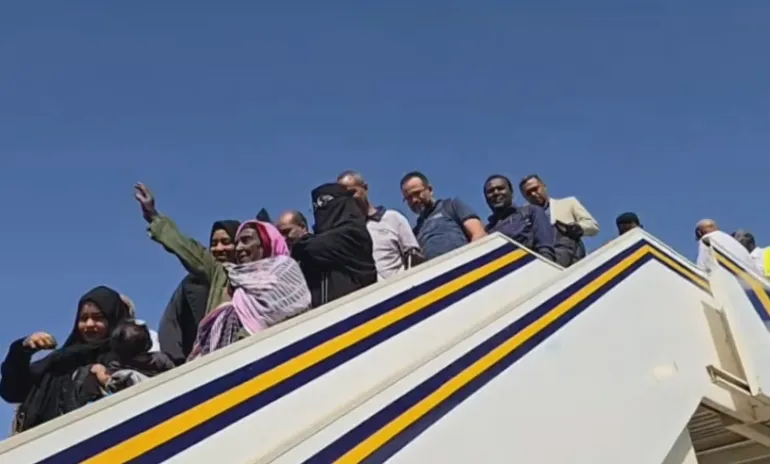Khartoum airport receives first scheduled flight since start of Sudan war | Sudan war News
Celebrations as flight carries dozens of passengers from Port Sudan to Sudanese capital.
Published On 1 Feb 2026
The international airport in Khartoum has received its first scheduled commercial flight in more than two years as the Sudanese government continues to assert its control over Sudan’s capital city after years of fighting.
The Sudan Airways flight travelled to Khartoum from the Red Sea city of Port Sudan on Sunday, carrying dozens of passengers.
Recommended Stories
list of 3 itemsend of list
Reporting from near the runway where the flight had landed, Al Jazeera’s Taher Almardi described scenes of jubilation following the arrival of the plane.
He said the reopening of the airport will help connect the capital to other regions in Sudan, with officials saying the facility is now ready to welcome as many as four flights daily.
Sudan Airways said in a statement that the flight, which was announced on Saturday with ticket prices starting at $50, “reflects the return of spirit and the continuation of the connection between the sons of the nation”.
The Sudanese military announced regaining full control of the capital from its rival, the Rapid Support Forces (RSF) paramilitary group, in March of last year.
Last month, Sudan’s army-aligned authorities moved the government’s headquarters back to Khartoum from their wartime capital of Port Sudan, which has also housed the country’s international airport since the early days of the war that began in April 2023.
Khartoum International Airport has come under repeated attacks, including an RSF drone assault in October that Sudanese officials said was intercepted.
On October 22, the airport said it had received a Badr Airlines flight, which was not pre-announced. But no further operations of commercial flights resumed until Sunday.

The war started as two top generals – Abdel Fattah al-Burhan, the leader of the military, and Mohamed Hamdan “Hemedti” Dagalo, the RSF chief – and their forces clashed for power and control over Sudan’s resources.
The fighting has ravaged towns and cities across Sudan, killing tens of thousands of people and forcing millions of others from their homes.
Violence continues to rage in central and western Sudan, particularly in Darfur, where the war has led to mass displacement and a humanitarian crisis.
“In Darfur today, reaching a single child can take days of negotiation, security clearances, and travel across sand roads under shifting frontlines,” Eva Hinds, spokesperson for the United Nations Children’s Fund (UNICEF), said in a statement on Friday.
“Nothing about this crisis is simple: every movement is hard-won, every delivery fragile.”
